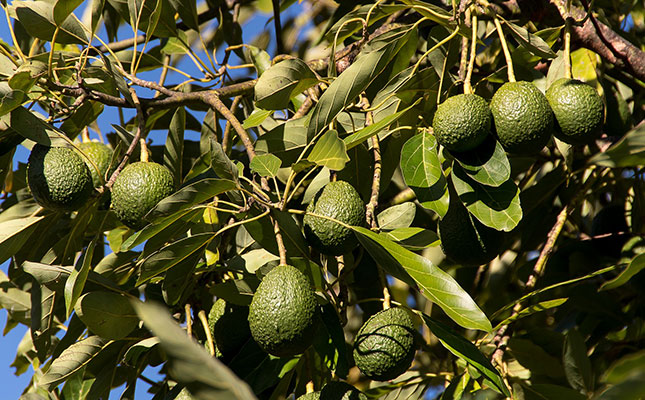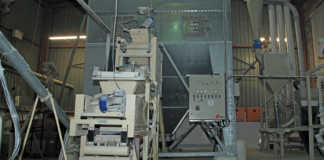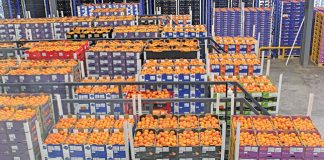
Photo: Pixabay
What is the true scope of theft in the sector?
Tommie Esterhuyse, chairperson of Agri SA’s Centre of Excellence: Rural Safety (TE): It’s impossible to fully determine the extent of theft on farms. A 2018 Agri SA survey showed that seven out of 10 participants had at some stage suffered losses due to the theft of infrastructure. [These crimes] cost the primary production sector R5,7 billion in 2018.
The scope of theft of agricultural products such as maize, fruit and livestock is exceedingly difficult to quantify, but the fact is that such crimes have a profound impact on farmers’ sustainability and profitability. In addition, they are forced to spend vast sums on security measures such as electric fencing, something they can hardly afford.
Farmer X, a citrus producer from Limpopo, who wanted to remain anonymous to ensure the safety of his farm and family (FX): It’s difficult to quantify the true extent of these crimes. We’ve found that theft escalates early or late in the season. Even if only 1% of an orange yield of 65t/ha to 80t/ha is stolen, it still has an enormously negative effect on business. The erection of fences adds markedly to farmers’ overheads.
What is the effect of increasing joblessness on the theft of agricultural products?Is it fair to say that poverty drives these crimes?
TE: Joblessness and the ailing economy have a tremendous impact on crime and criminality in the agriculture sector. Individuals suffering from abject poverty could be forced to commit crime. However, we also increasingly find cases of well-organised, profit-driven organised crime groupings operating. Agricultural and rural crime obviously have an impact on food security. If allowed to continue unabated, crime could force farmers off their land. That’s why we petition the police to do everything in their power to combat it; it’s in the national interest.
Derek Donkin, CEO of the South African Subtropical Growers’ Association (DD):
Avocados are stolen because they are high value. Joblessness may be a contributing factor, but farmworkers, not the jobless, are often involved. Often, theft is well organised and people are ‘employed’ to go out and steal fruit. Hawking stands are often owned by entrepreneurs who employ people to run these stands. A general disrespect for the law, coupled with poor law enforcement and light sentences (often a R2 000 admission of guilt fine) for convicted thieves are definitely contributing factors. In July 2014, there was one small fruit hawker’s stand on the George’s Valley Road leaving Tzaneen. Now there are 14 such stands, all much bigger than the original one. The law enforcement agencies do not enforce the ‘no hawking’ rule. This is a prime example of disregard for, and lack of enforcement of, the law.
Dr Jane Buys, Free State Agriculture’s Safety and Risk Analyst (JB): We need to determine whether a specific crime is being committed by an individual or a group of people. We should also distinguish between crimes of need and crimes of greed. An individual stealing because of need, such as hunger and poverty, could have a family to feed and is unemployed.
An organised crime group or syndicate is usually motivated by greed. In the agriculture sector, most property-related crimes are motivated by greed, not need. When a person steals five sheep or more and sells them, it can safely be assumed that he or she is involved with an organised crime syndicate targeting specific commodities in a specific area.
Organised crime groups/syndicates specialise in specific agricultural products. The syndicate is run as a business with a well-established network of people and well-established markets.
It’s difficult to ascertain the number of such crime networks operating in the agriculture sector, but the fact is that they do exist and should be taken seriously by all role players in the agricultural value chain.
What is the role of hawkers in the trade of stolen agricultural produce?
DD: Fruit theft is common, but one cannot make a broad statement that hawkers always sell stolen fruit. Packhouses and farmers sell second- and third-grade fruit to the informal sector, which lands up in the hawking trade.
However, it is sometimes evident that fruit being sold by hawkers is stolen, as it is export quality and often sold for a price lower than would be paid to a farmer if it were delivered to a packhouse for export. In Tzaneen, hawkers sell avocados well before the commercial harvest season, making it likely they were stolen.
What measures can be taken to prevent thieves coming onto your farm?
FX: Electric fencing with barbed wire make it more difficult for perpetrators to enter, but won’t entirely stop them from stealing. There’ve been many cases where thieves have simply dug a hole underneath the fences to gain access.
What is the modus operandi of thieves in your area?
FX: Most of the theft flows from inside information, making it easier for groups or syndicates to decide when and where to enter the premises and where the best or early-ripening fruit is to be found. Stealing takes place mostly at night.
The stolen fruit is usually packed into 50kg bags during picking and carried to a prearranged collection point.
What should people be on the lookout for to make sure the produce they buy from hawkers is not stolen?
DD: In the case of avocados, it’s difficult to say whether those offered by hawkers are stolen or not, so it’s difficult to provide guidelines in this regard.
However, at this time of year (January), it’s highly likely that avocados on the informal market are not ready to pick and won’t ripen properly. While this isn’t necessarily a sign of theft, buyers run the risk of not being able to eat the fruit if it’s bought so early in the season.
FX: There are signs to look out for to determine whether fruit was stolen. For example, on farms, oranges are usually snipped off the tree with a pair of scissors, washed and sorted, then covered in a wax layer. There’s a 90% chance that hand-picked fruit without the tell-tale wax layer is stolen.
Email Dr Jane Buys at [email protected].
Email Derek Donkin at [email protected].
Phone Tommie Esterhuyse on 012 643 3400.
*This article was edited on 5 July 2020.










